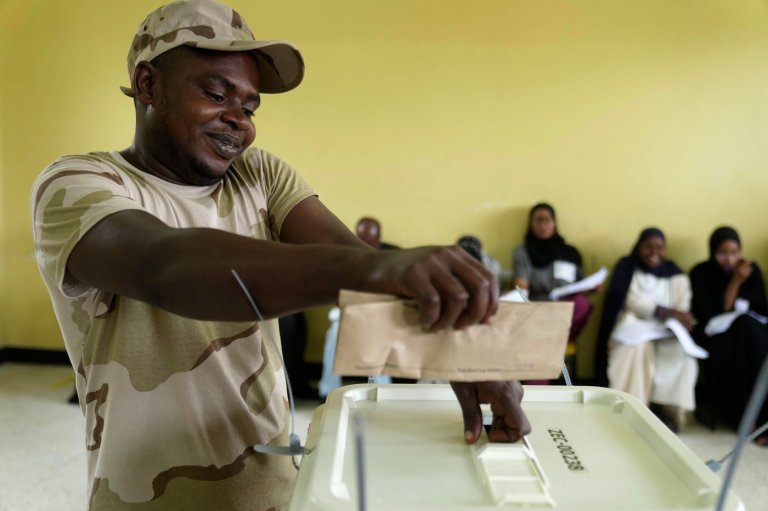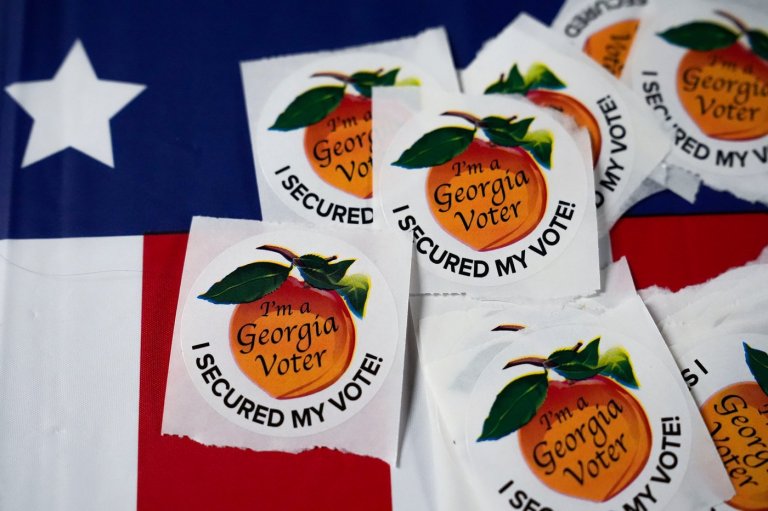Republican lawmaker endorses Clinton and president asks: Where are the others?
WASHINGTON – A first Republican lawmaker has emerged to declare his intention to vote for Hillary Clinton, against his party’s own nominee whom he calls a shameless and hate-pandering narcissist unfit to lead the U.S.
Now Democrats are asking: Where are the other Respublicans?
U.S. President Barack Obama dove into the issue when asked about Donald Trump’s multi-day spat with relatives of a deceased soldier who accused him of Muslim-bashing.
The president replied that the Republican nominee keeps proving he’s unfit for the White House. Then he turned his sights on other Republicans — the party leaders who keep expressing discomfort with Trump, yet still endorse him.
“If you are repeatedly having to say in very strong terms that what he has said is unacceptable, why are you still endorsing him?” Obama told a news conference Tuesday, standing beside the prime minister of Singapore.
“This isn’t a situation where you have an episodic gaffe (from Trump). This is daily and weekly where they are distancing themselves from statements he’s making. There has to be a point in which you say, ‘This is not somebody I can support for president of the United States, even if he purports to be a member of my party.’
“These denunciations (eventually) ring hollow. … There has to come a point at which you say, ‘Somebody who makes those kinds of statements doesn’t have the judgment, the temperament, the understanding, to occupy the most powerful position in the world because a lot of people depend on the White House getting stuff right.’ … There has to come a point at which you say, ‘Enough.’”
He said his differences with Trump aren’t like those with his opponents Mitt Romney or John McCain — with whom he had philosophical disagreements on things like tax rates and foreign policy.
He said at least those rivals were bound by rules of common decency and basic sense.
Yet the political dilemma for Republicans was plain to see Tuesday. Trump delivered a political bodycheck to two famous Republicans who’ve been slightly critical of him: McCain and House Speaker Paul Ryan. Trump refused to endorse them in their upcoming primaries. He even publicly lauded Ryan’s opponent, thanking him for his unequivocal support.
Republicans like Ryan have repeatedly chided, distanced themselves from, or avoided talking about Trump. Some have said they won’t vote for him. Prominent staffers for people like Jeb Bush and Chris Christie have suggested they’ll vote for Clinton.
But only one elected federal Republican has declared he’ll be voting Democrat.
That lone lawmaker is uniquely placed to do so. Richard Hanna is a popular third-term congressman who won his last election by almost 50 per cent; he’s in a swing district in New York that split its votes in the last presidential election; and, perhaps most importantly, he’s not running again.
Hanna unloaded on his party’s nominee this week. In a public op-ed, he cited Trump’s spat with the family of the dead soldier.
“Months ago I publicly said I could never support Trump. My reasons were simple and personal. I found him profoundly offensive and narcissistic but as much as anything, a world-class panderer, anything but a leader,” Hanna wrote.
“I never expect to agree (completely) with whoever is president, but at a minimum the president needs to consistently display those qualities I have preached to my two children: kindness, honesty, dignity, compassion and respect…
“While I disagree with her on many issues, I will vote for Mrs. Clinton. … I trust she can lead. All Republicans may not like the direction, but they can live to win or lose another day with a real candidate. Our response to the public’s anger and the need to rebuild requires complex solutions, experience, knowledge and balance. Not bumper sticker slogans that pander to our disappointment, fear and hate.”
Some commentators wondered why Obama keeps wading in. Trump has been sliding in the polls since the conventions; his Democratic rival has leapfrogged him and led by more than five percentage points in most recent surveys.
Given the president’s unpopularity with Republicans, some suggested, Obama’s words were as likely to entrench Republican opposition against his party as to prompt a sudden stampede in its direction.
Yet those surveys point to one reason for Obama’s involvement — the president is more popular than either Trump, or Clinton. A Public Policy poll this week showed Clinton leading her Republican rival by five per cent — while Obama, in a hypothetical matchup, led by nine per cent.
If the president was trying to insert himself in the campaign, it appeared to work Tuesday. Trump’s campaign promptly issued a news release blasting the president’s legacy on the Middle East, the Iranian nuclear deal, illegal immigrants committing crimes, the meagre economic recovery since 2009 and the outsourcing of jobs.
For good measure, Trump got in a shot on Twitter: “President Obama will go down as perhaps the worst president in the history of the United States!”
According to Gallup, Obama has a 53 per cent approval rating — exactly what Ronald Reagan had at this stage in his presidency, lower than Dwight Eisenhower or Bill Clinton, but 20 percentage points higher than George W. Bush and 21 percentage points higher than the current favourability rating of Trump.
Join the Conversation!
Want to share your thoughts, add context, or connect with others in your community?
You must be logged in to post a comment.


















